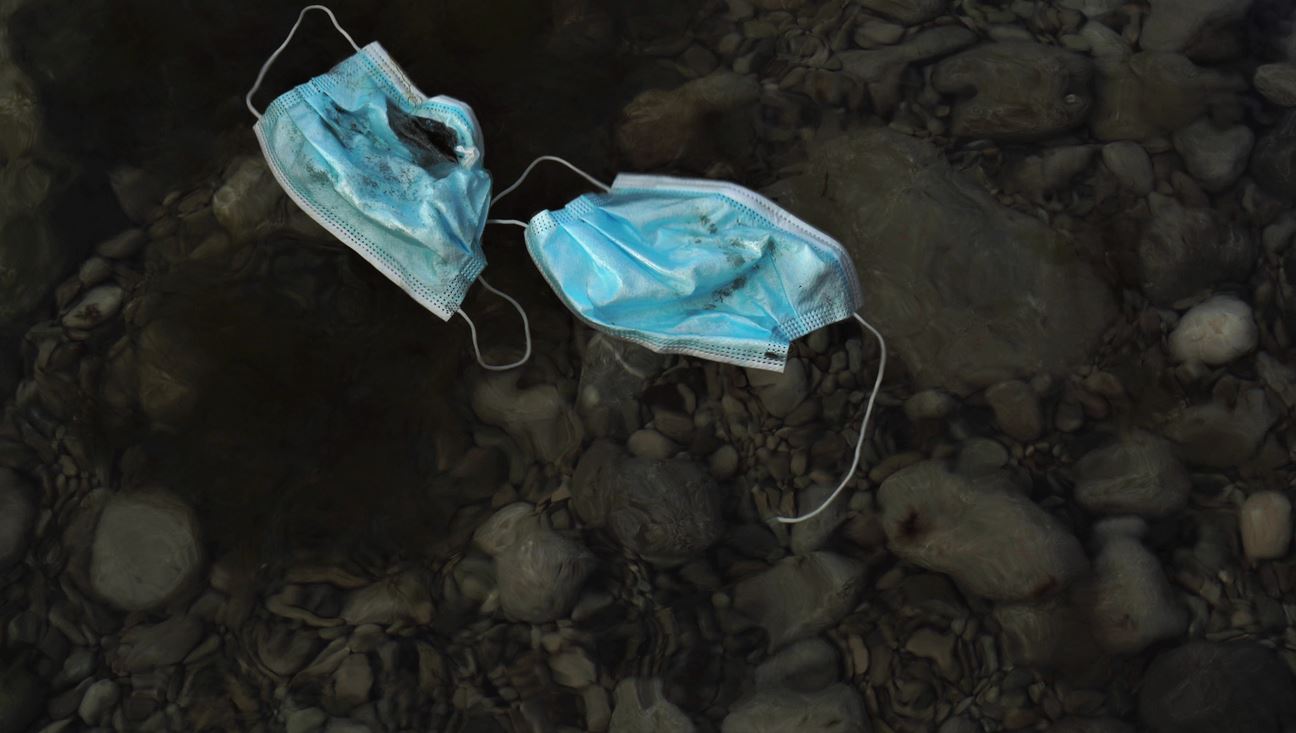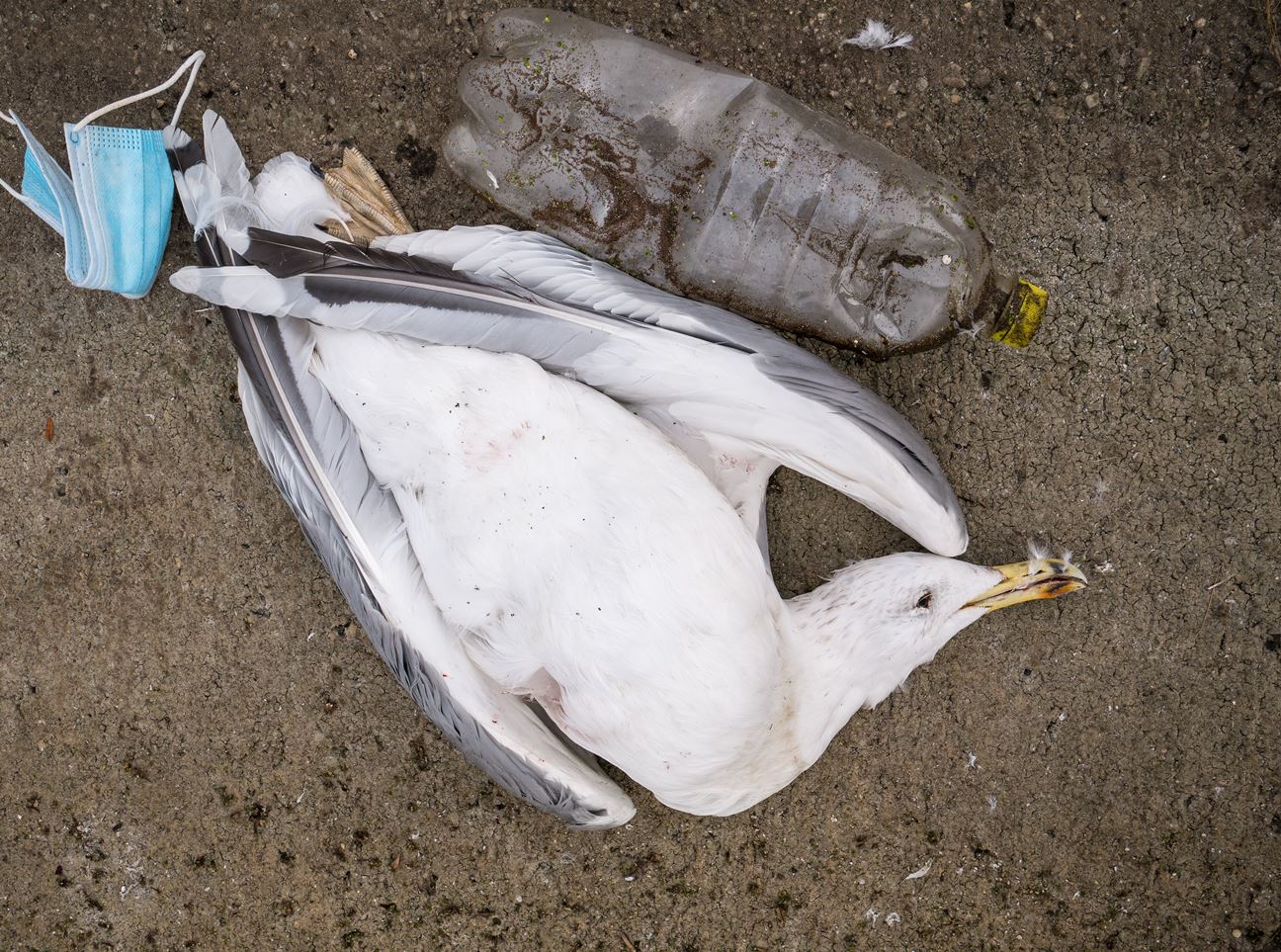The littered used masks, gloves, and other PPE supplies are hurting the environment. Its effect on animal life is rather grim.
The global wildlife is facing yet another problem! While the ongoing COVID-19 pandemic has resulted in the reduction of air pollution and CO2 emissions, plastic pollution is on the rise. Protective equipment, while supposed to keep humans safe, is posing a great deal of danger to the animal and plant world. Naturally, the priority was to implement protective measures to contain the mitigation of the virus. But the use of plastic in the production of hand sanitisers, face masks, and gloves has indicated a steep rise in the existing plastic problem. A rough estimate of the number of face masks and gloves used globally would give us an idea of how significant the rise in plastic pollution is. Many countries have increased their face mask production by almost 500%! For example, a study suggests that every month, over 130 billion face masks and 65 billion gloves are being used.

Plastic in the Pandemic
As face masks became obligatory in most countries around the world, more plastic was thrown into the system. Plastic is known to have a lifespan of roughly 450 years. Post which, it never fully degrades, but only shrinks into micro-plastic and nano-plastic. Single-use face masks and single-use gloves are made of polypropylene (PP) fabric and comprise rubber strings. The microfibers in polypropylene are known to be hydrophobic and act as a protective layer against droplets in the air. The more intricate masks contain polyurethane (PUR) and/or polyacrylonitrile (PAN).
Growing concern about the Personal Protective Equipment (PPE) litter started to become apparent when the volunteers of the beach clean up drives started noticing PPE items carelessly thrown around on the beaches. In an attempt to educate the masses, people on social media came up with hashtags like #glovechallenge that encouraged people to share photos of the COVID-19 litter in their surroundings. It was earlier observed that wrongly disposed face masks and gloves were found near markets, restaurants, and supermarkets, but as wearing a face mask became mandatory at almost all public places globally, the litter started spreading increasingly. As a consequence, the COVID-19 litter posed potential damage to the animals and birds in the immediate vicinity.
Both the face masks and gloves pose a risk to the animals and birds across the world - from ingestion, entrapment, and entanglement. The effects of plastic on animals can be acute or chronic. For example, entanglement can be acute and result in suffocation or drowning, followed by near-instant death. On the other hand, entrapment can cause restricting the movement of the animal and causing starvation, wounds and infections.
Interaction with Animal Life
The Netherlands reported the first case of impact of the COVID-19 litter on animal life when local clean-up drives started reporting hundreds of wrongly disposed of face masks and gloves. And the first-ever evidence of marine animals suffering from PPE litter came when a dead perch was found entrapped in a single-use glove. The 'Plastic Spotter' canal clean-up drive spotted this fish in August 2020, making it a victim of PPE litter.
In the following months, litter from discarded PPE equipment was found in various ecosystems - marine, freshwater, and terrestrial. The fauna existing in these habitats was most severely affected by the pollution. These include birds, mammals, and fishes too. In Chilliwack, Canada, an American robin was found dead as early as April 2020 when its feet got entangled in a face mask. Around the same time, a seagull was found walking on the beach in Chelmsford, the UK with a face mask trapped around its legs. The seagull walked around with the mask around its legs for two months before it was taken to the hospital for intensive care. Also in the UK, along the Yorkshire coast, a young peregrine falcon had his feet caught up in the strings of the face mask before it managed to set itself free.
 A dead seagull and a littered face mask
A dead seagull and a littered face mask
Similar to the birds, bats are also affected by irresponsibly disposed of face mask litter. Apart from the risks from COVID-19 litter, the bats are also suffering from roost destruction due to its infamous association with the start of the COVID-19 outbreak. A few among the many other instances of animals and birds suffering from litter entanglement include a European hedgehog and a red fox intertwined in a single-use glove in the UK, a dead checkered pufferfish tangled in a face mask found during the Pace Picnic Island at the Miami Beach, USA, and a shore crab walking around with a mask around his leg in Lake Étang de Berre, France.
Instances of COVID-19 litter ingestion are ghastly! An autopsy done on a Magellanic penguin found on the Juquehy Beach in São Sebastião, just north of São Paulo, revealed that the penguin died due to ingestion of a used face mask. At Genting Sempah in Malaysia, many long-tailed macaques were seen chewing on the gloves and face masks. At the Weymouth beach in the UK, visitors observed two young gulls fighting over a face mask while the gulls were out looking for food. There have been reports of domestic animals like dogs and cats ingesting face masks too.
The Impact on the Wildlife Continues
Multiple reports from around the world suggest that the coronavirus garbage crisis is becoming global. Clean-up crews on beaches, volunteers with animal shelters, birdwatchers and nature photographers have immensely contributed to sharing this problem. The pandemic is far from over and so is the usage of PPE kits. And till the time the pandemic continues, so does the threat to the wildlife.
Solution
The government and academia should come together with an aim to educate the public on how to effectively dispose of the COVID-19 litter. Some initiatives are encouraging people to snip the straps of the face masks and cut up the fingers of the hand gloves to minimise the risks of entanglements. Implementing fines for littering and making information on how to dispose of plastic waste seems like few short-term solutions. Additionally, people should minimise the use of single-use plastic containers and utensils when shopping for groceries or ordering food. Moreover, using reusable masks, such as masks made of cotton, can contribute to the lessening of plastic pollution.